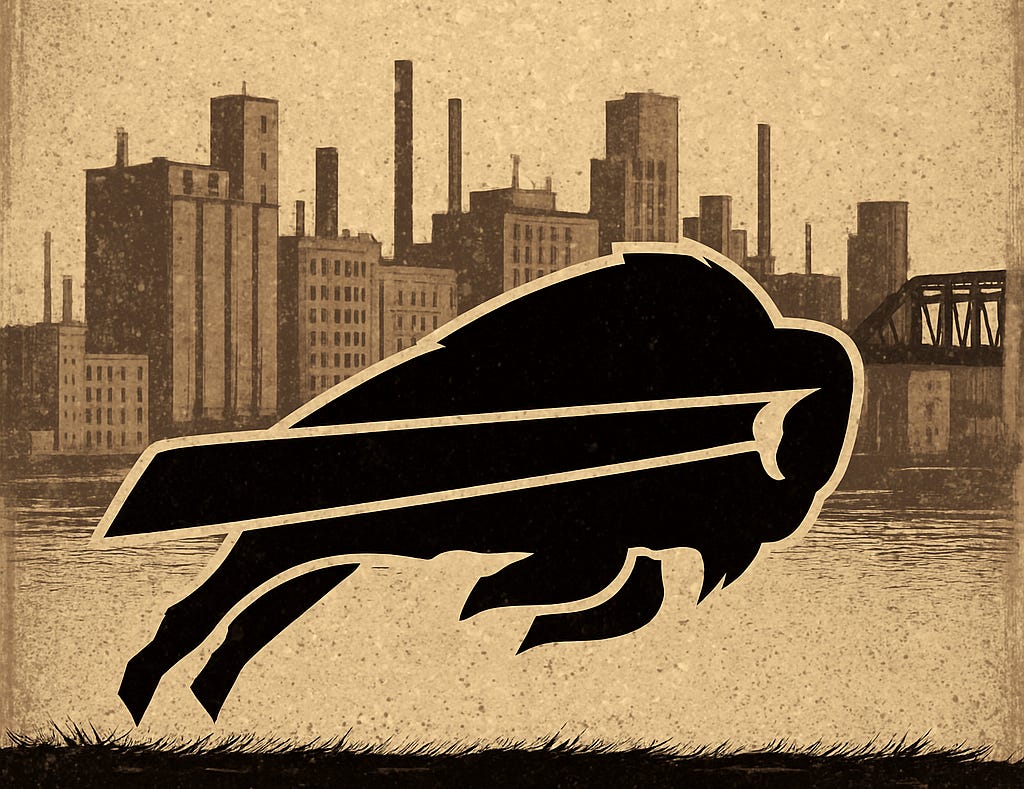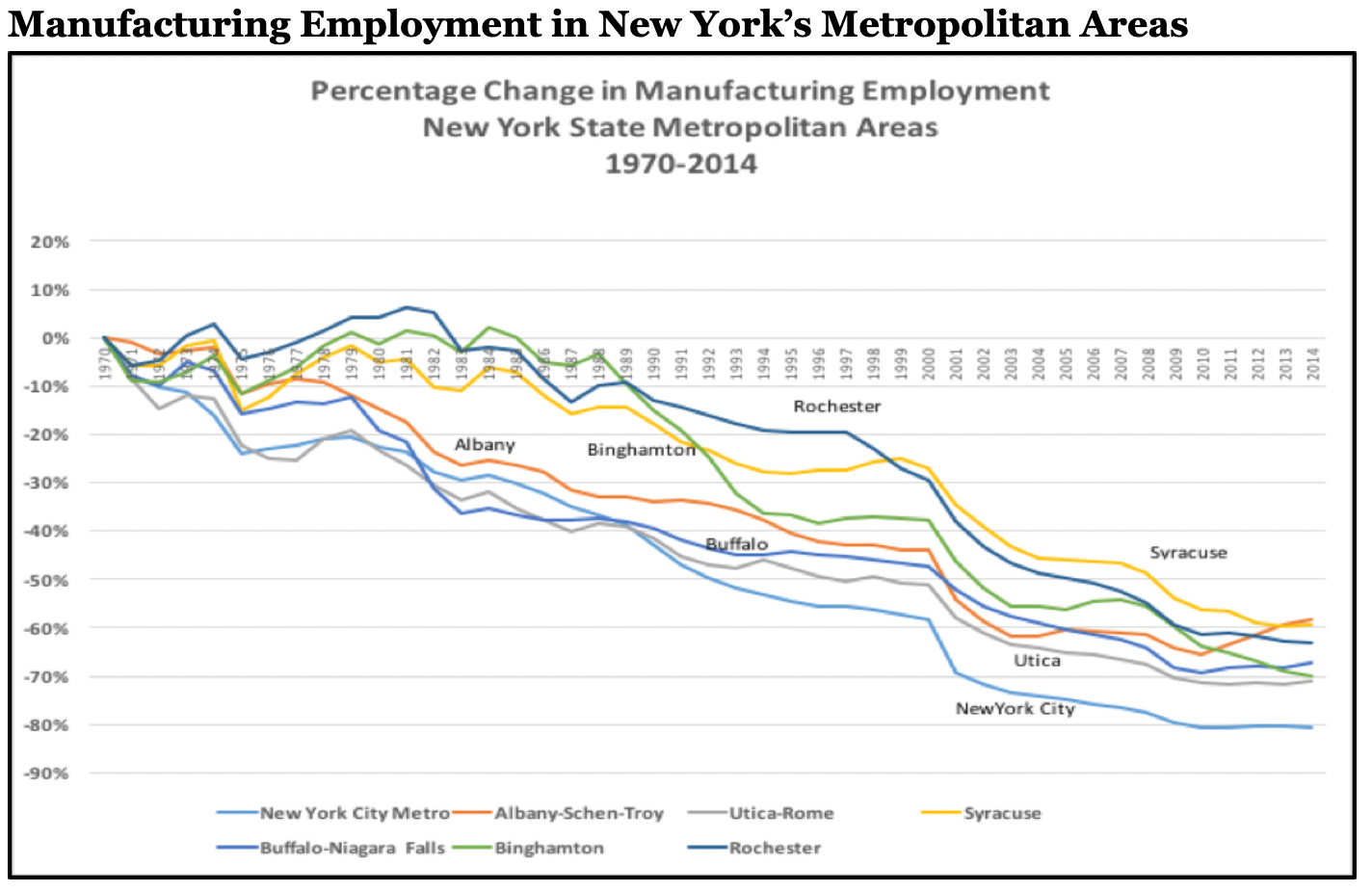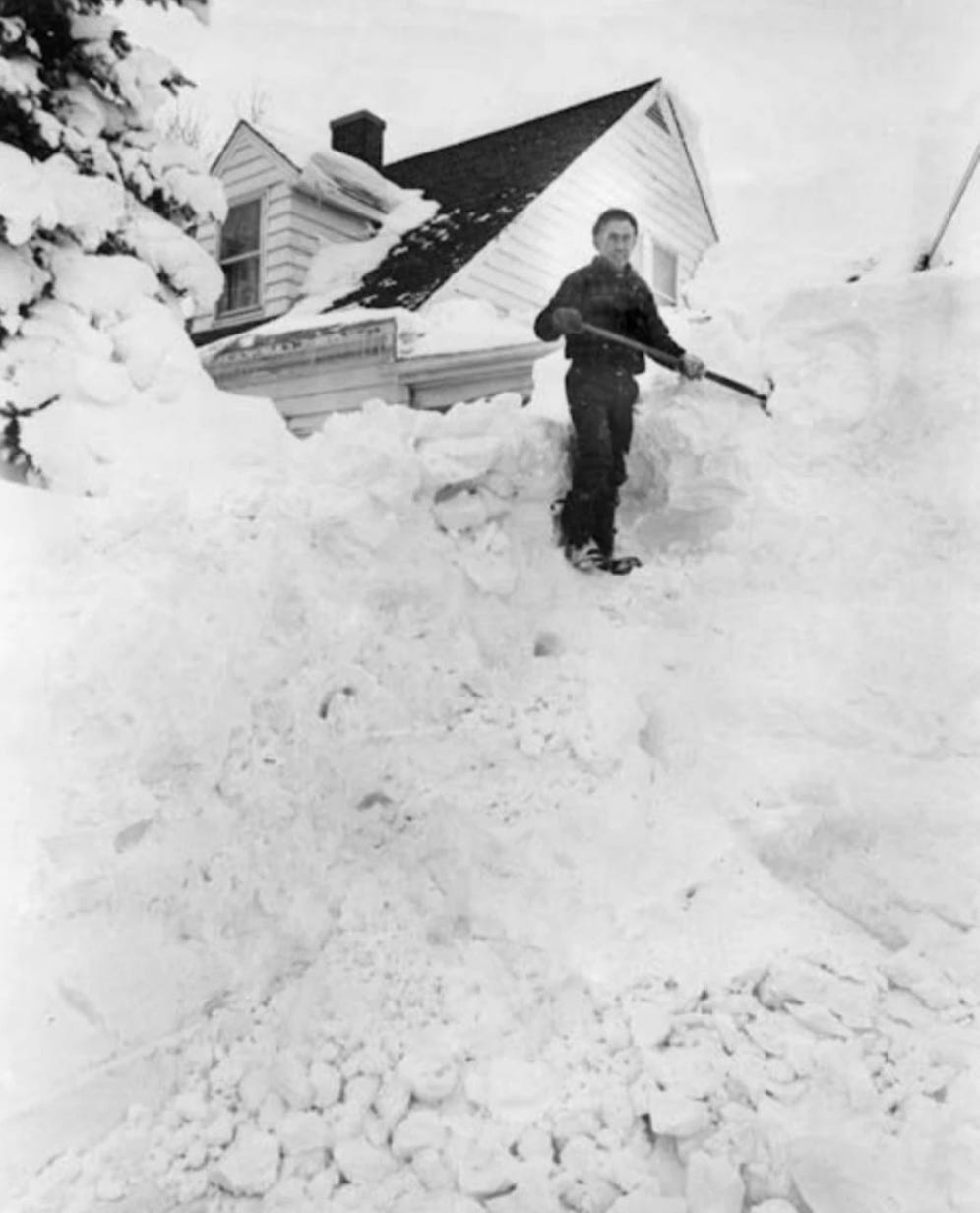How Buffalo Shapes Its Football Team
The heartbeat of the Buffalo Bills
Buffalo is a city that many would consider past its prime. Similar to Cleveland, I don’t think Joakim Noah is going on vacation there anytime soon. When you think of Buffalo, you think of the snow, the Rust Belt, and its football team. And you know what? The people who live there like it that way despite a now growing economy driven by healthcare and finance. While coastal elites may look down on a place like Buffalo, the people there are proud of their roots.
To understand Buffalo, you have to understand its history, its people, and its football team. The story of the Buffalo Bills is the story of the blue-collar city it represents, known for hard work, grit, and doggedness. And that’s why the fans have embraced its football team.
In 2010, a passionate group of Bills fans started trolling Adam Schefter on Twitter after he retweeted old news about a vulnerable player on their team, leading Schefter to block the group of fans.
Fans jokingly called those who were blocked the Bills Mafia. The term started to spread, and by the time training camp rolled around the following season, players were even using it. It stuck and now defines the whole fanbase—a mafia that defends its team like they defend their own city.
Buffalo’s Boom
The origin story of Buffalo is about a city that rose out of necessity. Its location at the edge of the Great Lakes was essential in connecting the East Coast to the Midwest. The Erie Canal allowed boats to carry shipments from the Atlantic Ocean, New York, and Chicago in one go. Sitting between them all was little, old Buffalo.
As Buffalo became a key city for cargo to pass through, it became one of the biggest grain centers in the world. From Buffalo, grain was distributed throughout the region and nation. The growth of the grain industry resulted in thousands of people flocking to the city.
In the early 20th century, coal, iron ore, and electricity from Niagara Falls led to the growth of the iron and steel industry in Buffalo, which eventually surpassed the grain business. Thousands more jobs were created as large manufacturing corporations made their way to Buffalo.
Similar to the early days of Buffalo, the Bills have had a lot of success recently. Since 2019, they have had the second-best record in the NFL and third-most playoff wins. By most standards, this type of success would be praised. However, the Bills haven’t been able to win the big game when it matters most.
In their six playoff runs since 2019, Buffalo’s season has ended at the hands of the Kansas City Chiefs four times. Patrick Mahomes and company have been the proverbial thorn in the Bills’ side. Mahomes always finds a way to beat Buffalo in the playoffs, making Josh Allen a symbol for all younger siblings who can’t live up to their older brother’s standard. Mahomes is a big reason why Buffalo is in a class of their own when it comes to championship droughts.
The last time the Bills won a championship was in 1965, before the AFL-NFL merger. In the four major American sports leagues, only the Arizona Cardinals, Cleveland Indians, Sacramento Kings, Detroit Lions, Atlanta Hawks, Minnesota Vikings, Texas Rangers, Tennessee Titans, San Diego Chargers, Cleveland Browns, and Atlanta Falcons (tie) have had longer championship droughts than the Bills.
Buffalo’s Bust
Just as the Bills are in a championship drought now, the city of Buffalo entered a drought of sorts in the 70s. If Buffalo’s geography helped turn it into a manufacturing power in the 1800s and early 1900s, its geography quickly turned it into a dying city in the mid to late 1900s.
In 1960, the St. Lawrence Seaway was opened, allowing ships to bypass Buffalo and no longer require its port for breaking up bulk and distributing goods across the country. In the 70s and 80s, market deregulation and offshoring meant manufacturing jobs were lost by the thousands. Instead of a city with promise and the American Dream, it turned into a city of burden and struggle.
Buffalonians have had to persevere through job loss and economic downturn. They keep sticking their neck above water, gasping for air, and extending their lives one breath at a time. That’s why the football team embodies the city so well. They also keep going no matter how difficult the playoff losses seem.
If “wide right” teaches you anything, it’s to get back up when you are at your lowest of lows. The Bills have had a lot of downers, including a record-setting four consecutive Super Bowl defeats in the early 90s. Only the New England Patriots and Denver Broncos have more Super Bowl losses (5), but we all know that both franchises have also tasted success in the ultimate game.
Buffalo’s Revival
Buffalonians are used to snow storms, both literally and figuratively. Buffalo is the snowiest large-population city in the US. The 70s were already rough financially for many citizens. However, the blizzard of 1977, which claimed the lives of 29 people, tested the city’s mental and emotional stamina. In a storm with winds up to 69 mph and snow drifts up to 40 feet high, people showed up to help their neighbors. Those who had snowmobiles got out and helped those in need.
Because Buffalonians endure brutal winters, the Bills are known for thriving in the cold. It’s a blue-collar mindset—show up and perform, no matter the conditions. However, when looking at the data, the home-field advantage of playing in freezing temperatures doesn’t always check out. Yes, Sean McDermott and Josh Allen have been great in cold-weather games, but this is likely because they have had great teams with those two partnered together.
Though some of the data is conflicting, looking at the Bills’ record during cold-weather games over many years shows they are more similar to the league average. Weather aside, if you look at home records over the last 20 years, the Bills rank just 13th best in the NFL.
However, this fact doesn’t stop the Bills Mafia from embracing the stereotypes. Just as they are now lifting their city into new industries and a growing economy, they are continuing to embrace the underdog mentality and hoping all visiting teams feel the chill of Buffalo.
Now is the time for Buffalo (the team and the city) to win. The city has been revitalized with a growing economy and a bright future. It seems the bust of manufacturing job loss is now in the rearview mirror.
Its football team’s championship window is as open as it ever will be. They just gave Josh Allen, the reigning NFL MVP, a six-year extension worth $330 million ($250 million guaranteed), which will keep him in Buffalo through 2030. Allen even left money on the table to give the Bills more flexibility. Said Allen:
"It didn't seem like from my perspective I was taking a whole lot less…It's weird to say this, but what is [$5 million] more going to do for my life that I can't already do right now? I told my agent that…if it has any impact on the cap, let's figure out a way to not do that.”
If Buffalo ever had a team to do it, it’s this one. The fans deserve it and it would be a fitting culmination to the city’s resurgence after years of struggle and hardship on and off the gridiron.





